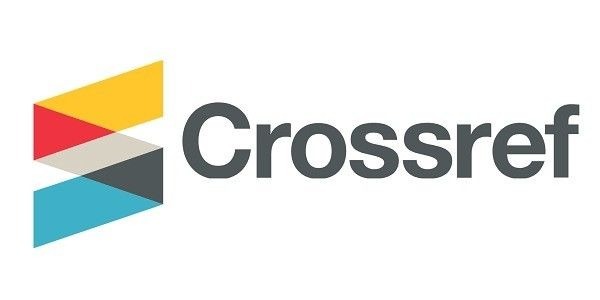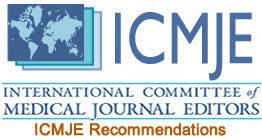Artificial Intelligence
Policy on the Use of Artificial Intelligence (AI) in Academic Publishing
The Medzone-Journal of Health Sciences (MJHS) has established a comprehensive policy to guide the ethical and responsible use of Artificial Intelligence (AI) in the academic publishing process. The key elements of the policy are outlined below. This ensures AI is employed in ways that uphold the journal's commitment to ethical research practices and quality standards in health and rehabilitation fields.
Purpose
- The policy aims to ensure that AI is utilized transparently and ethically, supporting the advancement of research in health and rehabilitation. By establishing clear guidelines, the journal seeks to maintain the integrity of the scientific process while encouraging the innovative use of AI technologies in improving research outputs.
Scope
- The policy applies to various AI technologies, including machine learning, natural language processing, automated data analysis, and AI-assisted peer review. It ensures that AI is used responsibly across all aspects of the academic publishing process, from manuscript submission to the final editorial decision.
Key Definitions
- AI: Technologies that mimic human thinking and decision-making. AI is transforming the research landscape by providing new tools to analyze large datasets and support decision-making processes.
- AI Content: Content created or improved using AI tools. This includes text generation, data analysis, and even artwork that can assist researchers in presenting their findings.
- AI-Assisted Decision-Making: Use of AI to assist in editorial decisions. This aims to improve the efficiency and consistency of editorial processes without replacing human judgment.
Main Guidelines
- Transparency
- AI Usage Disclosure: Authors, reviewers, and editors must disclose if AI was involved in the manuscript submission or review process. Transparency is crucial for maintaining trust in the scientific publishing process, allowing stakeholders to understand how AI contributed to the work.
- AI Contributions: The role of AI must be clearly identified and distinguished from human contributions. This clarity will help prevent misunderstandings about the origin of content and the contribution of different agents in the research.
- Ethics and Integrity
- AI Ethics Compliance: AI tools must be fair, unbiased, and ethically used. Researchers and editors are responsible for ensuring that AI tools are aligned with ethical guidelines and that they do not perpetuate harm or injustice.
- Data Privacy: AI must comply with strict data protection protocols to ensure the confidentiality and security of sensitive information. This is essential to protect research subjects and to maintain the integrity of the research process.
- Authorship and Acknowledgement
- AI in Authorship: AI cannot be listed as an author but must be acknowledged for any significant contributions. This reflects the current understanding that authorship should be reserved for humans who make intellectual contributions.
- Human Responsibility: Authors remain accountable for any AI-assisted components of their work. This ensures that the final manuscript aligns with ethical research standards and that human oversight is maintained.
- Quality and Originality
- AI Content Quality: AI-assisted or generated content must meet the journal’s quality standards. This includes ensuring that the content is scientifically rigorous, accurate, and aligns with the journal’s mission.
- Plagiarism Check: AI-generated content must undergo originality checks just like human-generated content. This helps prevent any inadvertent plagiarism and ensures the integrity of the published work.
- Review and Decision-Making
- AI in Peer Review: AI can assist in the peer review process but should not replace human reviewers. AI can help identify key aspects of the manuscript or flag potential issues, but the final judgment rests with human experts.
- Transparency in AI Decisions: If AI influences editorial decisions, the reasoning must be clear and justifiable. This provides an opportunity for authors and readers to understand how AI may have played a role in the decision-making process.
- Research Involving AI
- Methodology of AI Research: Authors must clearly explain how AI was utilized in their research, including the tools and methods. Transparency about AI usage in research helps ensure that the scientific community can evaluate and replicate the study if necessary.
- AI Study Documentation: Researchers should document the AI algorithms, datasets, and processes used. This is essential for future reproducibility, accountability, and the ongoing refinement of AI-based research methodologies.
- Changes and Version Control
- Documenting AI Modifications: Changes made by AI must be clearly tracked. This ensures the integrity of the content and provides a clear record of how AI has influenced the manuscript at various stages.
- Auditability: A system should be in place to trace AI-modified content versions. This allows for a transparent review process and ensures accountability if issues arise in the content’s evolution.
- AI Bias and Error
- Bias Detection: Efforts should be made to identify and correct any biases in AI algorithms or data. Since AI systems are influenced by the data they are trained on, it’s essential to ensure they do not perpetuate existing biases that may skew research outcomes.
- Error Management: Any errors caused by AI should be disclosed and addressed transparently. Acknowledging and correcting AI-induced errors is vital for maintaining the accuracy and reliability of research.
Implementation and Oversight
- Staff Training: Staff will be trained in the ethical use of AI in publishing. Ongoing education ensures that everyone involved in the publishing process is aware of best practices for using AI responsibly and effectively.
- Policy Review: The policy will be reviewed and updated regularly to keep pace with AI advancements. As AI technologies evolve, the policy must adapt to ensure its continued relevance and effectiveness in the publishing process.
Enforcement
- Compliance: Failure to follow the policy may result in manuscript rejection, retraction, or other disciplinary actions. This serves as a reminder of the journal's commitment to maintaining high ethical standards in academic publishing.
Review Process
- Annual Review: The policy will undergo an annual review or be updated as new AI technologies emerge. This ensures that the journal stays current with advancements in AI and continues to lead in promoting ethical AI use in publishing.
Conclusion
This policy ensures that AI is applied ethically and transparently in academic publishing, preserving the integrity of research and promoting innovation in the fields of health and rehabilitation. By fostering a responsible approach to AI, the journal not only enhances the quality of research but also encourages a culture of trust and accountability in the scientific community.




